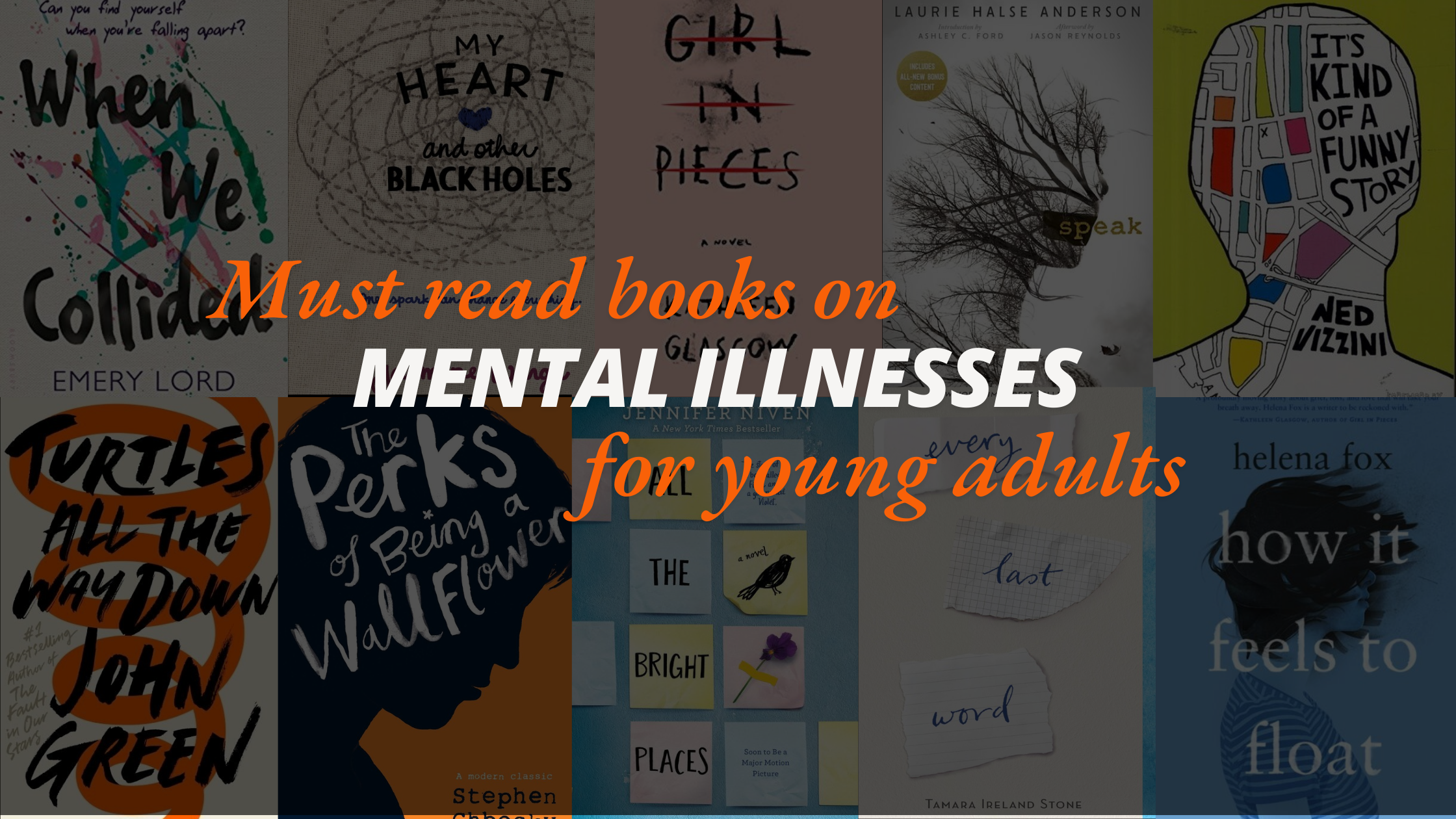Reading nonfiction books to understand mental illnesses is cool. But you know, fiction has its unique way of pulling us into the worlds and minds that we’d never experience otherwise. Novels about mental illnesses offer a window into the deeply personal lived experiences of those actually with such conditions, helping us empathize and connect with the other person on a more emotional level.
I could list all the reasons fiction does a better job of explaining mental illnesses, but ultimately, the best way to understand the reason would be to pick up one of such novels yourself. To make choosing easier, here are ten engaging and insightful books about mental illnesses for young adults.
1. Turtles All The Way Down by John Green
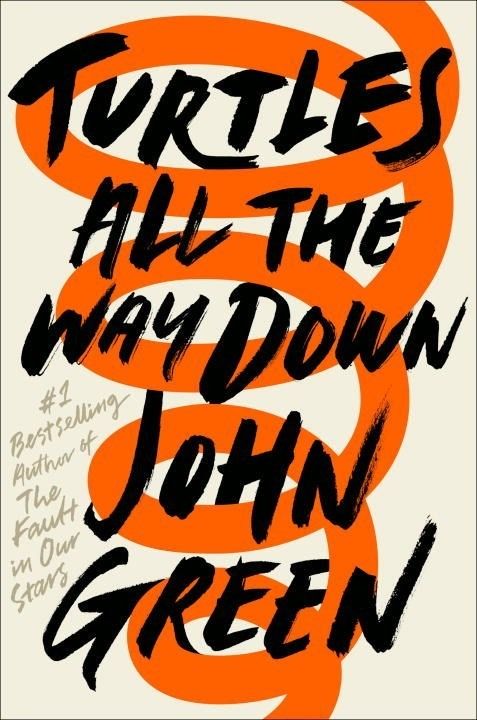
Mental health issues discussed: OCD
Turtles All The Way Down is probably one of the most realistic descriptions of OCD I have seen in any novel. The main character, Aza, deals with intrusive thoughts in a way that makes her feel trapped inside her mind. The descriptions are written so I could feel Aza’s anxieties creeping up on me while reading the book.
For example, there’s a scene where Aza becomes fixated on a small cut on her finger, spiraling into obsessive thoughts about bacteria. She keeps cleaning her hands with sanitizer to make herself feel clean again. But no matter how much sanitizer she uses, she can’t shake off the fear of bacteria or feel clean again. Moments like these make her struggle feel incredibly real to me.
Furthermore, Green shows how Aza’s obsessive thoughts take over her life, affecting her friendships, relationships, and outlook on the world. All of the elements combined make for an incredibly raw, emotional, and authentic story of a person suffering from an illness that doesn’t get “resolved” easily.
2. It’s Kind Of A Funny Story by Ned Vizzini
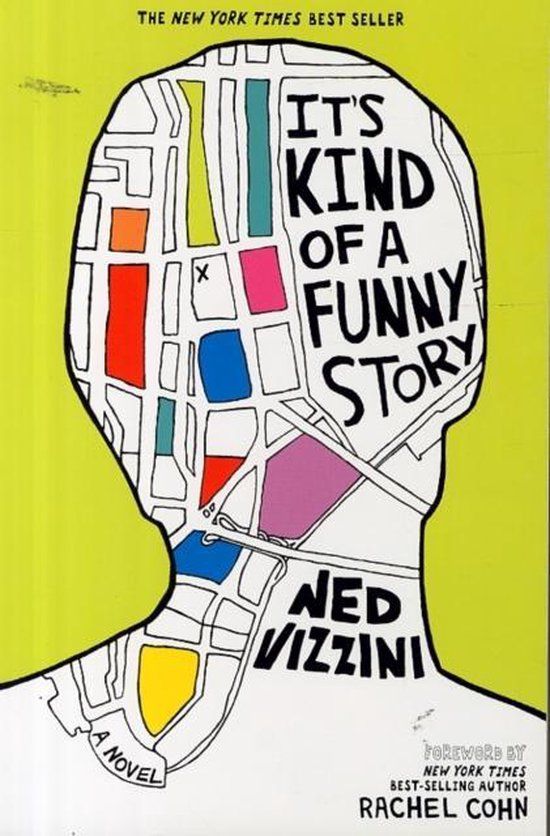
Mental health issues discussed: Depression, suicide ideation, self harm
It’s Kind Of A Funny Story, based on Ned Vizzini’s own experiences with depression, is one of the most heartfelt books I have read. The story revolves around a high school student, Craig, whose life has started to feel overwhelming because of academic pressure despite his various achievements.
He starts having thoughts of ending his life for good, but there’s a pivotal moment where he checks himself into the psychiatric ward during one of those times when the urge to do it gets intense.
You’d expect the book to get grimmer from there on, but on the contrary, that is when the book shifts from dark to hopeful. Craig’s time in the hospital is filled with quirky characters who come with their struggles.
I find Craig’s awareness of his mental state relatable—he’s quite self-aware and also willing to put in the work to make his condition better. While Vizzini doesn’t shy away from hard stuff, he also shows that recovery is possible. You might just have to take a step back from things, as Craig did in the book.
3. All The Bright Places by Jennifer Young
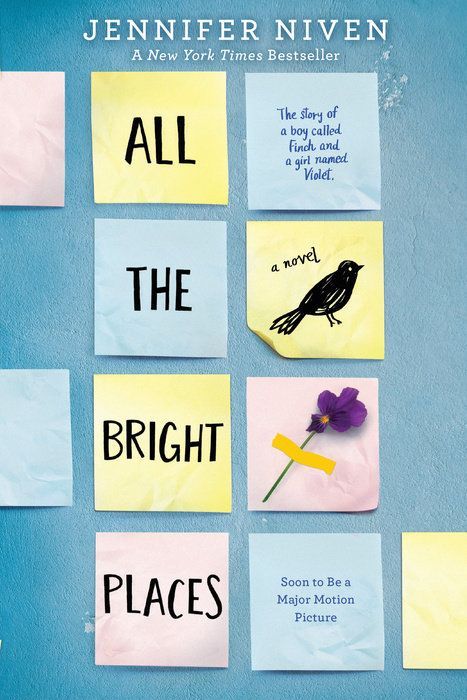
Mental health issues discussed: Bipolar Disorder
I couldn’t put it down when I started reading All The Bright Places by Jennifer Young. But, in the end, the book broke my heart. The book follows the stories of two teenagers— Finch, who struggles with bipolar disorder, and Violet, who is grieving the loss of her sister in a car accident they both were involved in.
What drew me into the book was the way Young writes Finch’s character. He’s charismatic and vibrant initially, but then the darkness comes. His relationship with Violet is intense; he helps her heal. Their love story is tragic and beautiful, but this book is not just about that.
The book shows, and painfully so, what happens when mental illnesses are left untreated or misunderstood. It shows the devastating consequences that occur due to a lack of support or awareness around mental health. Overall, All The Bright Places becomes just the kind of book that stays with you long after you’ve finished it.
4. My Heart And Other Black Holes by Jasmine Warga
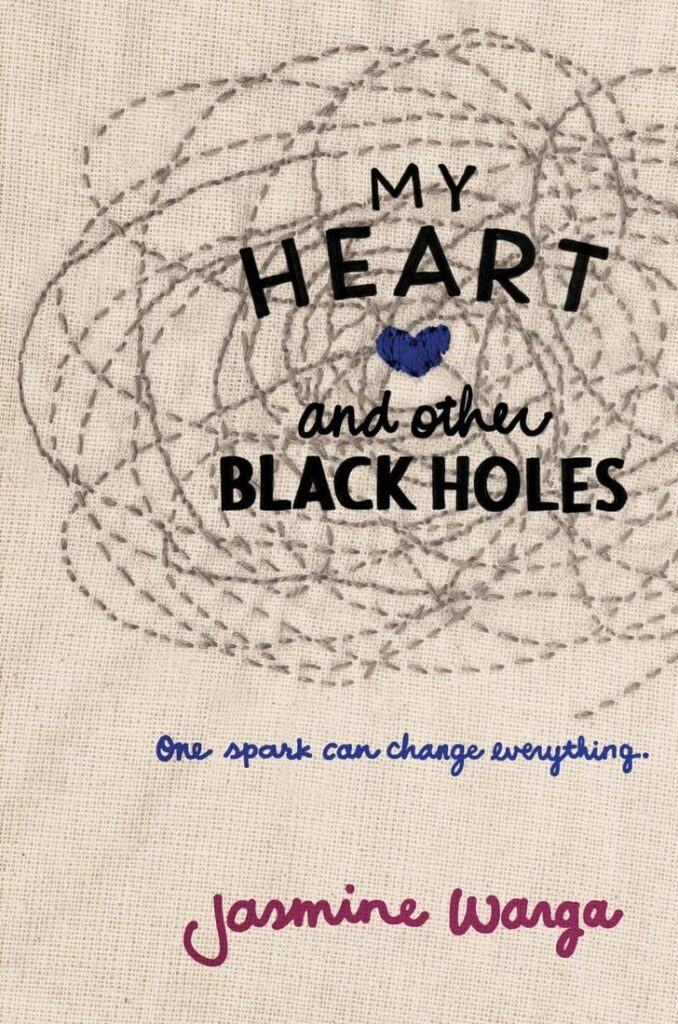
Mental health issues discussed: Depression, Grief, and Suicide Ideation
My Heart And Other Black Holes is a haunting yet hopeful exploration of depression and suicidal ideation. The book follows the story of Aysel and Roman, two teenagers who are planning to take their lives but lack the courage to do it on their own. So, they connect through an online suicide pact forum to help each other carry on with their plans.
What struck me about this book was how well it managed to capture the hopelessness and isolation that comes with crippling depression. I found Aysel’s voice full of self-loathing, and while reading the book, I could feel her thoughts bringing her down.
But what makes this novel special for me is that it doesn’t stay like that forever despite the hopeless note it may have started on. Throughout the book, Aysel and Roman begin seeing that there may be another way out of their pain. I found myself rooting for these characters, cheering on them, and hoping they make it.
The book offers a compassionate portrayal of depression. I recommend this book to anyone who wants to have a better understanding of how it feels to live with depression and the internal struggles of those suffering from suicidal ideation because of it.
5. The Perks Of Being A Wallflower by Stephen Chbosky
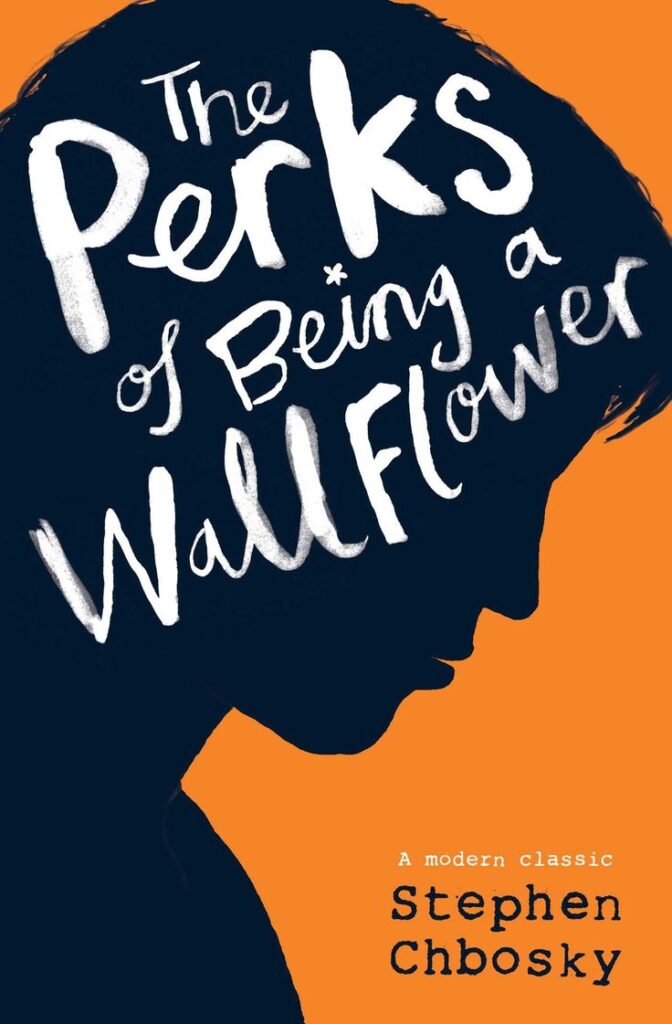
Mental health issues discussed: PTSD, Depression
The Perks Of Being A Wallflower is one of those books that have a universal appeal— especially for those people who have ever felt out of place in this world. Charlie, the protagonist of the story, is a shy and introverted teenager dealing with depression and trauma. His story is told via the letters he writes to an anonymous friend in the book.
Throughout those letters, we get to see the multiple facets of mental health— grief, trauma, anxiety— all while maintaining a personal connection with Charlie. His experiences feel raw and emotional.
And that’s the thing about the book. It doesn’t feel dramatic; it’s quiet and introspective. Although there are heartbreaking moments, the book proves that healing is possible despite the darkest moments in life. Overall, The Perks Of Being A Wallflower is a simple story, but its emotional depth makes it so powerful.
6. How It Feels To Float by Helena Fox
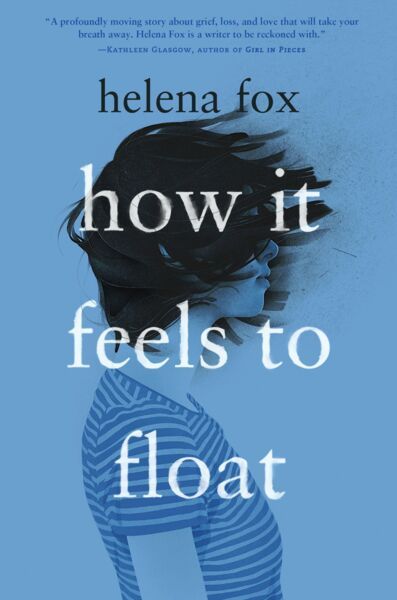
Mental health issues discussed: Grief, Dissociation
If you want to read a book that takes a painfully close look at grief and dissociation, I suggest you pick up How It Feels to Float. The book follows the story of Biz, a teenager who feels disconnected from the world around her. She keeps floating between reality and the memories of her father, who has passed away.
What really appealed to me is Fox’s ability to capture Biz’s surreal and dreamlike state of mind. The book is written in a lyrical and poetic way that pulls you into Biz’s fragmented worldview. While reading it, I could feel her confusion and pain as if they were my own.
However, while the book deals with topics like depression and suicidal thoughts, it also touches on the importance of human connection. I found Biz’s journey to be both heartbreaking and healing. Moreover, even though the book is deeply emotional, it shows that even when things feel hopeless, there’s a way forward— especially when you’ve lost a loved one.
7. Girl In Pieces by Kathleen Glasgow
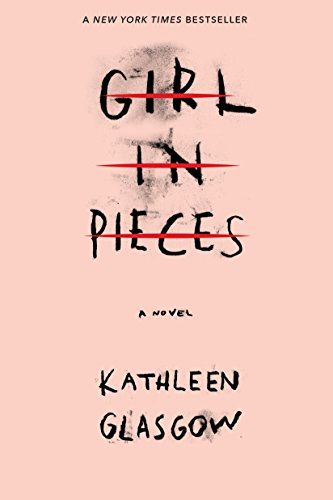
Mental health issues discussed: Self-harm, Suicide ideation, Selective Mutism, Drug & Alcohol Abuse
Girl In Pieces is one of the most intense, gut-wrenching portrayals of trauma, self-harm, and recovery I have ever read. The protagonist, Charlie, has been through some adverse moments in life, struggles with self-harm and has a history of failed attempts. But through the pages, we follow Charlie as she tries to piece her life back together after surviving a suicide attempt.
I’ve always found Glasgow’s writing to be incredibly raw, and even in Girl In Pieces, she doesn’t shy away from showing the brutal realities of mental illness. I found the book triggering in many places and had to put it down to catch my breath.
The way Charlie’s story is told makes her pain palpable. I felt I was there with her as she struggled to find a reason to keep going. However, if the book shows darkness, it is also about resilience. It’s about finding hope in the smallest moments, which makes the book so powerful. I promise you, Charlie’s story of survival will stay with you long after you’ve finished reading.
8. Every Last Word by Tamara Ireland Stone
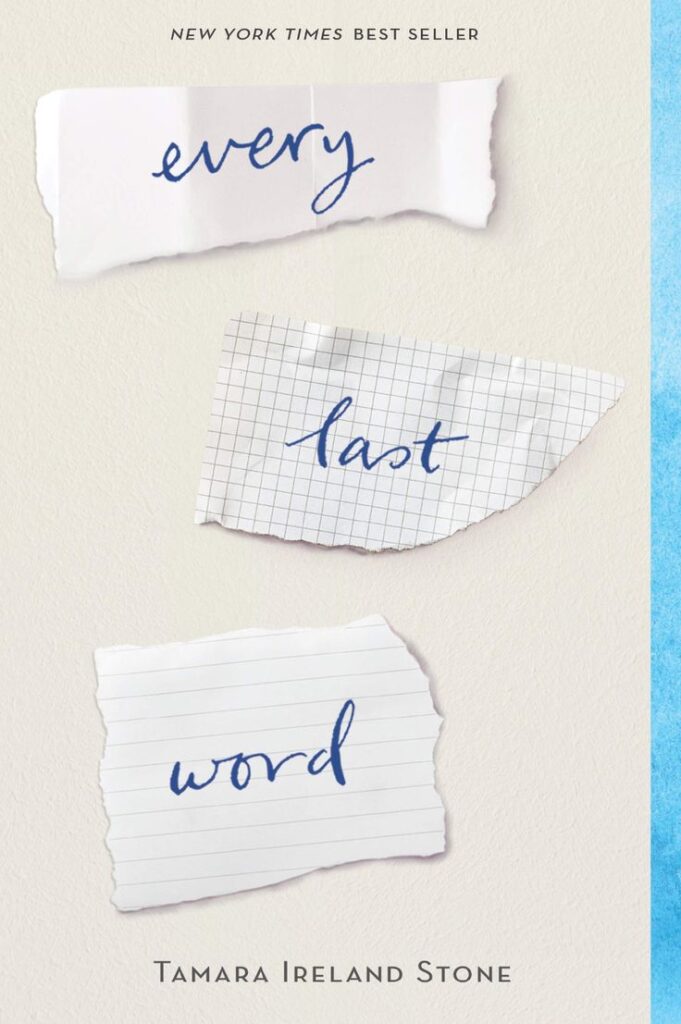
Mental health issues discussed: OCD
What I love about Every Last Word so much is the compassion and nuance it presents OCD with. The main character, Samantha, has obsessive thoughts that are always present in her but are invisible to everyone else. Her struggle with perfectionism and fear of judgment is quite relatable.
The turning point in the book comes when Samantha joins a secret poetry club, where she finally starts expressing all the thoughts she’s kept hidden. Through poetry, she starts understanding herself better and also builds genuine friendships that ultimately help her heal.
While certain novel elements were controversial, the book captures the power of creative expression, therapy, and connection in dealing with mental illnesses. This made Every Last Word a touching and authentic read for me.
9. Speak by Laurie Halse Anderson

Mental health issues discussed: PTSD
If you want to understand PTSD better, you need to read Speak. The book tells the story of Melinda, a high school freshman who stops speaking after she suffers sexual assault at a party at the beginning of her school year.
However, while Melinda stays silent, her silence still speaks volumes about the pain and isolation she feels in the aftermath of the assault. What I love about the book is how it shows Melinda’s recovery process; it’s as non-linear as recovery is. It doesn’t come immediately or easily, either. Throughout the novel, you get to stand by Melinda as she reclaims her voice and sense of self.
Anderson’s writing was sparse but impactful; every word felt significant to me. Speak was a tough read for me because of the subject matter, and you might find it so, too. However, given the sensitive and honest way the book deals with trauma, I think everyone should read it once.
10. When We Collided by Emery Lord
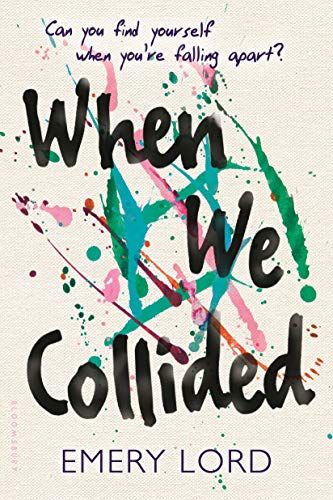
Mental health issues discussed: Bipolar Disorder, Self-harm, Suicide Ideation
When We Collided is one of those books that doesn’t make a person all about their illness. The book explores bipolar disorder and grief through Vivi and Jonah, respectively. Vivi’s character is full of life, but how her manic energy radiates off the page is both exhilarating and heartbreaking.
There’s a scene where she pulls Jonah, another book’s main character, into a spontaneous, borderline-dangerous beach adventure. This scene manages to capture her impulsiveness but also hints at the fragility that lies beneath her vibrant exterior.
As Vivi’s mood swings become more erratic, we see how their impact on her relationship with Jonah also deepens. This shows that mental illnesses affect not just an individual but also the world around them. Through this and more such examples, When We Collided explores the complexities of mental illnesses yet balances those moments with joy and hope for healing that comes through understanding.
